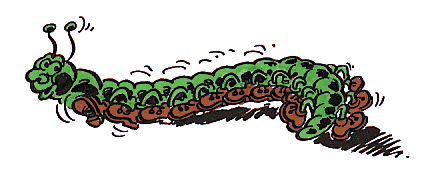Ped Words: “aliped” to “octoped”,
Part 1 of 2
Words that include: ped-, pedi-, -pedal, -ped, -pede, -pedia (Latin: foot, feet)
Remember that this Latin ped- means “foot” while the Greek ped- [paed] means “child”.
If you want to leave footprints in the sands of time,
don’t drag your
feet.
—Rayoa
aliped:
1. Wing-footed, having wings on the feet, like the figures of Mercury; hence, swift-footed.
2. In zoology, having the toes connected by a membrane that serves as a wing, as with bats; a cheiropterous animal.
anguiped, anguipede:
Having feet or legs in the form of serpents, serpent-footed: an epithet of certain giants of ancient mythology.
biped:
1. A two-footed animal.
2. Having two feet; two-footed.
bipedal, bipedaling, bipedalism, bipedality:
1. Having two feet, two-footed, biped; specifically designating a reptile that uses its two hind feet for walking or running; also denoting this method of movement.
2. Capable of locomotion on two feet; e.g., an iguana and some other lizards have this capability.
3. Sometimes used humorously as a reference to a human who is a bipedaling monoglot (a two-footed person who speaks one language) or a bipedaling polyglot (a two-footed person who speaks many languages).
 A biped is in pursuit of a polyped in hopes of having a snack.
A biped is in pursuit of a polyped in hopes of having a snack.
breviped:
Having short feet (or legs); such as, a short-legged bird.
capitopedal:
Relating to the head and the feet.
carpopedal:
Relating to the wrist and the foot, or the hands and feet; denoting especially carpopedal spasm.
capriped:
Goat-footed.
carpopedal:
Relating to the hand and the foot (in carpopedal spasm, a term applied to the local convulsions which affect the hands and feet of children).
celeripedean:
A swift footman.
centipedal:
Of one hundred (metrical) feet.
centipede:
1. A venomous predatory arthropod of the order Chilopoda, characterized by one pair of legs per leg-bearing segment. The venom is injected through the first pair of leg-like appendages, modified into piercing claws; the bites may be painful and locally necrotic, but seldom are dangerous, except to very young children. Genera found in the U.S. include Scutigera, Lithobius, Scolopendra, and Geophilus.
2. A name given to wingless vermiform articulated animals having many feet, constituting the order Cheilopoda of the class Myriapoda. Those of tropical countries are very venomous.
cheiropod, cheiroped:
A name applied to the mammals possessed of hands, including the Bimana (man), and Quadrumana (monkeys, lemurs).
cheliped:
One of a pair of limbs bearing large claws, or chelae, found in decapod crustacea.
decempede, decempedal:
1. Ten feet in length.
2. Having ten feet.
 A decempede (on each side) demonstrates
A decempede (on each side) demonstrates
his multipedal co-ordination.
depeditate:
To deprive of one’s feet (or the use of them).
depeditation:
Amputation of the foot.
dextropedal:
Denoting someone who uses the right leg in preference to the left; right-footed.
equipedal:
Having equal feet, said of the two equal sides of an isosceles triangle or having the pairs of feet equal.
equipede:
Having legs of equal length.
expedite:
1. The Latin word etymologically means “to free (a person’s) feet from fetters” (the contrary of impede); hence, to free from difficulties, to help forward, to get (a work) out of hand, to dispatch, send off, etc.
2. To help forward, hasten the progress of.
expedition:
1. A journey, voyage, or excursion made for some definite purpose.
2. A body of persons, also a fleet, etc., sent out for a warlike or other definite purpose.
3. From the Latin verb expedire, which originally had the meaning “free one’s feet” from a snare, for example.
expeditious:
1. Of action, a voyage, etc.; speedily performed.
2. Of a method, leading to a speedy performance.
3. Of an answer, quickly given, ready.
fissiped, fissipede:
1. Having the toes separated.
2. An animal having its toes divided.
hecatomped:
Measuring a hundred feet in length and breadth; a hundred feet square.
hexaped:
1. A measure of six feet.
2. A creature with six feet, a hexapod.
ignipedites:
Burning pain in the soles of the feet, in multiple neuritis; hotfoot or hotfeet.
impede:
1. To retard in progress or action by putting obstacles in the way; to obstruct; to hinder; to stand in the way of.
2. The act of impeding; hindrance; impediment.
 The woman impedes the man’s efforts to escape from her control.
The woman impedes the man’s efforts to escape from her control.
impedient:
1. That which impedes or hinders; obstructive, hindering.
2. An impeding or hindering agent.
impediment:
1. The fact of impeding or condition of being impeded; hindrance, obstruction; or something that impedes, hinders, or obstructs; a hindrance, an obstruction.
2. Something that impedes the functions or health of the body; a (physical) defect; an affection or malady.
impedimenta:
Things which impede or encumber progress; baggage; travelling equipment (of an army, etc.).
impeding:
That which impedes or obstructs; hindering.
inexpediency:
The quality of being inexpedient; disadvantageousness, unadvisableness.
octoped:
An eight-footed animal or thing.